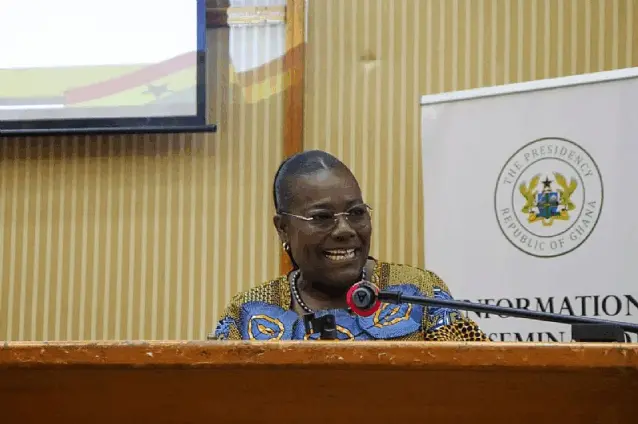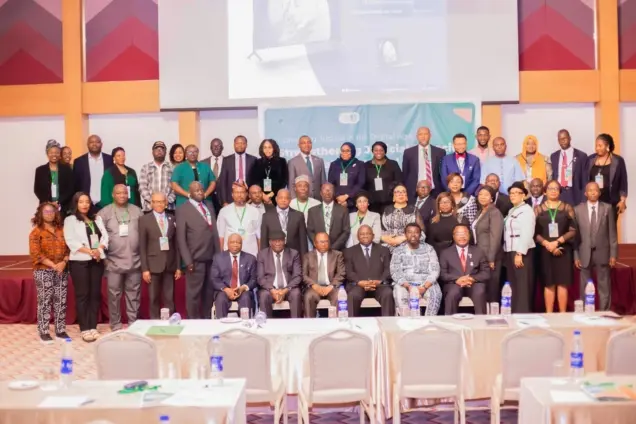In Ghana, more and more citizens are turning to social media as their primary gateway to government services. A recent Public Opinion Survey conducted by the Office of the President reveals a significant shift in how Ghanaians access information about government activities, with social media platforms taking center stage. This trend underscores the increasing importance of digital engagement for government agencies and the need for a more strategic approach to online communication. The Deputy Chief of Staff, Nana Oye Bampoe Addo, has emphasized the urgency for government ministries, departments, and agencies (OGM) to improve their digital presence and engagement strategies.
The survey’s findings highlight a crucial area for improvement in how the government connects with its citizens, making understanding of social media and Ghana government services more important than ever. This article explores the survey’s key findings and delves into the implications for government agencies, offering recommendations for enhanced public engagement and improved service delivery.
The Public Opinion Survey, conducted between October and December 2024 by the Office of the President, sought to understand citizen perceptions and preferences regarding access to Ghana government services. The survey, which reached over 1,000 respondents across all sixteen regions through focus groups, interviews, and online platforms, revealed that social media has become the dominant source of information about government activities for a significant portion of the population.
Several factors contribute to social media’s growing popularity as a source of information. Its accessibility and convenience are undeniable, especially in a country with high mobile penetration rates. The interactive nature of social platforms, allowing for real-time feedback and engagement, further enhances its appeal. The National Identification Authority (NIA), responsible for issuing the Ghana-Card, stands out as one of the most frequently accessed OGM, demonstrating a clear demand for efficient and accessible government services.
Nana Oye Bampoe Addo has called for a concerted effort by OGM agencies to bridge the digital divide and improve their online presence. She specifically recommended leveraging digital tools and social media platforms to disseminate information, ensuring that websites are functional and regularly updated, and publishing annual reports containing financial and operational data. “Transparency and trust are paramount,” she stated, emphasizing the need for government agencies to be proactive in communicating with the public.
Functional websites play a critical role in building public trust. Regular updates, clear information, and user-friendly interfaces are essential for ensuring that citizens can easily access the services and information they need. Proactive information dissemination through town hall meetings and public outreach campaigns also contributes to greater transparency and accountability. To further drive improvements in visibility and service delivery, a Performance Ranking Index of OGM institutions is scheduled to be launched in Q3.
Madam Bampoe Addo emphasized that staff training is also necessary to improve customer service, professionalism, and responsiveness within OGM agencies. Investing in staff development is crucial for ensuring that government employees are equipped to meet the evolving needs of citizens. Dr. Evans Aggrey-Darko has called for leveraging technology to minimize human interface and prevent financial infractions, highlighting the critical role of internal auditors in preventing financial irregularities. The Deputy Government Spokesperson, Madam Shamima Muslim, expressed conviction that effective implementation of the research recommendations would build public trust, enhance operational efficiency and align services with the needs of Ghanaians. The website of the various OGM Agencies must be user-friendly and interactive, with a mechanism for feedback from the public.
In conclusion, the Public Opinion Survey underscores the critical role that social media plays in how Ghanaians access Ghana government services. Nana Oye Bampoe Addo’s recommendations provide a clear roadmap for OGM agencies to improve their digital engagement strategies and enhance transparency. By embracing digital tools and social media platforms, government agencies can foster greater public engagement, build trust, and ultimately, deliver better services to the citizens of Ghana. Citizens are encouraged to actively engage with government services through social media and other digital platforms, fostering a more connected and responsive government.
Image Source: MYJOYONLINE






















